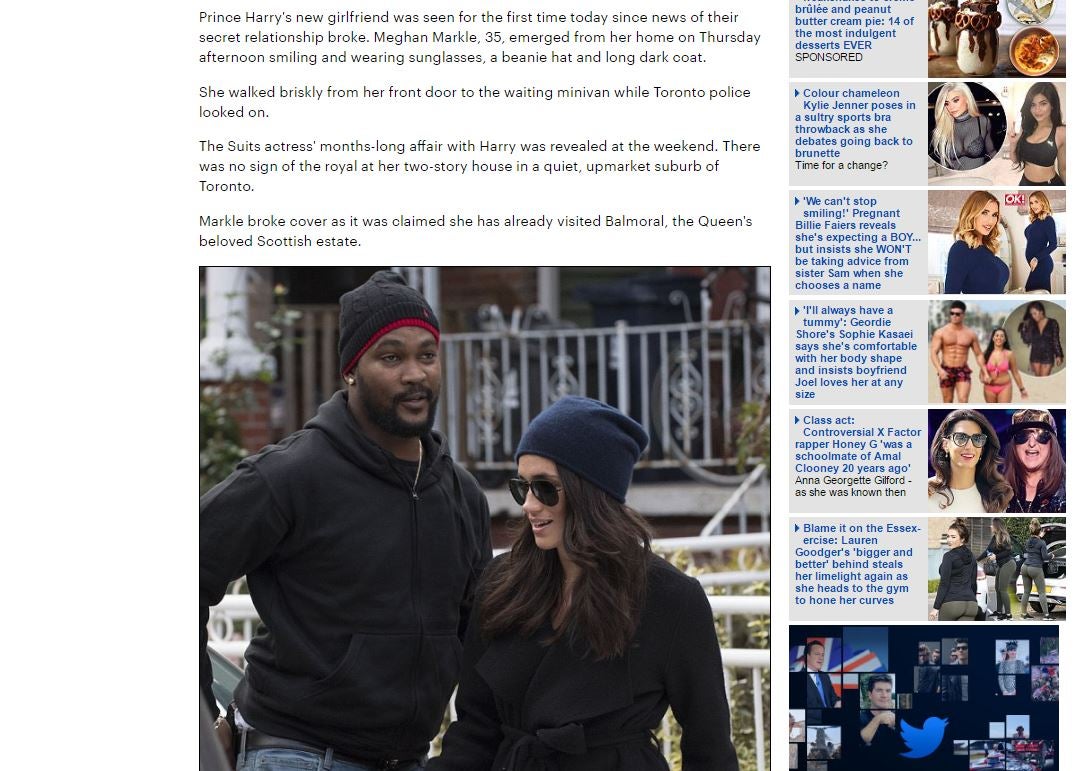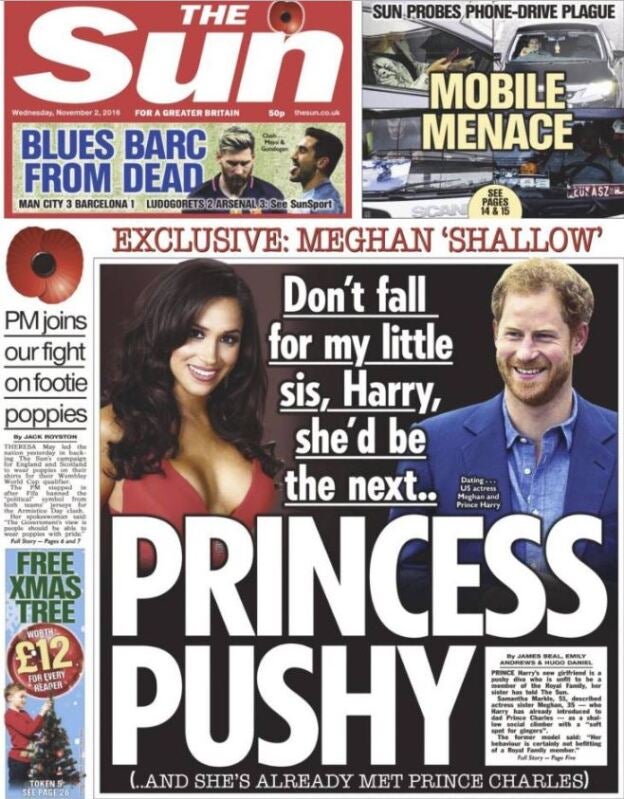
News that Prince Harry was in a “secret” relationship with the US actress Meghan Markle was broken by the Sunday Express and Daily Star Sunday on 30 October.
Since then there have been hundreds of stories in the UK national press about the romance.
Most have been comment pieces, profiles of Markle and news stories about her social media updates. This sort of coverage has to be seen as ‘fair game’ – once the fact of the relationship was out there in the public domain.
But some reports have been more intrusive – and help explain Harry’s heartfelt plea to the Fleet Street to leave him and his new girlfriend alone.
Mail Online has been particularly forthright, publishing paparazzi photos of Markle taken outside her Toronto Home and doorstepping her mother.
Press watchdog IPSO has the power to urge its member publications to desist from activities which people in the news feel amounts to harassment. But it has no influence overseas.
Mail Online wants its US-facing site to be immune from IPSO regulation, because it is edited and read overseas. The watchdog is currently reviewing its rules on this, but has yet to announce a decision.
Harry and Markle want British publications to stop using photos taken abroad in situations which they feel amount to harassment.
Such has been the level of media interest in Markle that a police car has been stationed outside her Canada home.
The Daily Telegraph reported on 31 October that Markle was “still dating a Canadian chef when she reportedly met the Prince for the first time”.
The Sun published an unflattering interviews with Markle’s estranged half sister Samantha.

Mail Online doorstepped Markle’s mother in Los Angeles and also interviewed neighbours in the LA area where she grew up.
The Editors’ Code states: “Everyone is entitled to respect for his or her private and family life, home, health and correspondence, including digital communications.
“Editors will be expected to justify intrusions into any individual’s private life without consent. Account will be taken of the complainant’s own public disclosures of information.
“It is unacceptable to photograph individuals, without their consent, in public or private places where there is a reasonable expectation of privacy.”
It would appear that some of the press coverage goes beyond this. The public interest justifications as set out in the Editors’ Code are as follows:
- Detecting or exposing crime, or the threat of crime, or serious impropriety.
- Protecting public health or safety.
- Protecting the public from being misled by an action or statement of an individual or organisation.
- Disclosing a person or organisation’s failure or likely failure to comply with any obligation to which they are subject.
- Disclosing a miscarriage of justice.
- Raising or contributing to a matter of public debate, including serious cases of impropriety, unethical conduct or incompetence concerning the public.
Email pged@pressgazette.co.uk to point out mistakes, provide story tips or send in a letter for publication on our "Letters Page" blog
